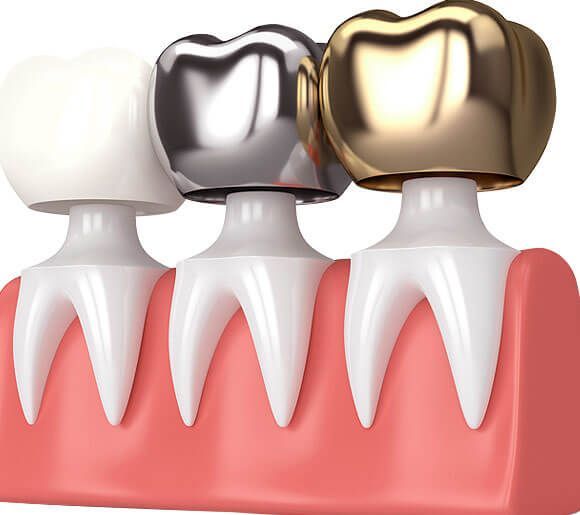
Two of the most common fixed
prosthetic devices in dentistry are crowns and bridges, which replace damaged
and/or missing tooth/teeth. A dental crown is a type of restoration in the form
of a cap placed over the damaged tooth to restore its shape, size, sturdiness
and appearance. This is a dental bridge, which serves to replace one or more
lost teeth by affixing an artificial tooth to the crown on the neighbouring
natural teeth or implants. Crowns and bridges are handmade from porcelain,
ceramic or even metal alloys in a dental laboratory and provide a lasting and
realistic resolution to various dental issues.
Indications:
● Crowns: To recover a badly chipped,
fractured or worn tooth. Crowns connect the portions of a broken tooth and
cover a weak tooth. It is also applied to protect and reinforce a tooth on
which the filling is huge in instances with little tooth structure.
● Bridges: To fill any gaps of a few teeth. An effective way of sealing the gap created by the missing tooth is through a bridge, which avoids the remaining teeth filling the gap with other teeth.
Indications:
● Crowns: To recover a badly chipped,
fractured or worn tooth. Crowns connect the portions of a broken tooth and
cover a weak tooth. It is also applied to protect and reinforce a tooth on
which the filling is huge in instances with little tooth structure.
● Bridges: To fill any gaps of a few
teeth. An effective way of sealing the gap created by the missing tooth is
through a bridge, which avoids the remaining teeth filling the gap with other
teeth.
● Crowns: To cap a dental implant.
After an implant is surgically inserted in the jawbone, a crown is the last
type of restoration, which gives a similar appearance and functionality to a
natural tooth.
● Bridges: To repair and beautify the function of the chewing.
A bridge not only enhances the look of an individual's smile but also brings
back the capability of chewing and talking, as lacking teeth may significantly
affect these functions.
Impacts:
● Tooth Function: Crowns allow a
damaged tooth to chew and bite, and bridges allow the chewing and biting
ability lost with a missing tooth. This enhances the general condition of the
oral cavity and facilitates digestion.
● Advanced beauty: Crowns and bridges
are made of natural teeth colour, shape, and dimensions. This corrects a full
and natural-looking smile, and confidence is a significant boost.
● Shifting Teeth Prevention: The open
space caused by a missing tooth is closed by a bridge, which keeps the other
teeth in the proper position. This preserves the structure of the bite and will
stop future dental issues.
● Preservation of Weakened Teeth: Placing a crown on a
weakened or broken tooth offers a protective covering so that it does not hurt
more. This ensures that the original tooth structure is maintained to a greater
extent.
